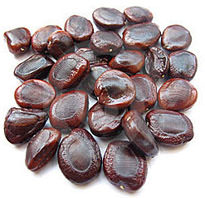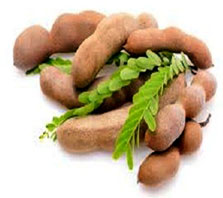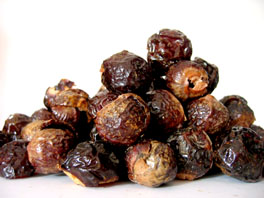

+91-9822039433
Our Product
Saya Sons Majorly deals in All Type of Tamarind ( Commonly known as IMLI) Seeded Tamarind, Whole Tamarind, Tamarind Seed. We also deal with products like Soapnut etc

tamarind

Botanically, the tree is among the large tropical trees belonging to the family of Fabaceae, of the genus: Tamarindus. Scientific name: Tamarindus indica.
Tamarind is more commonly known as Tamarind or imli. Its mere name is enough to tingle your taste buds. Tamarinds find their ways into almost all savories and snacks in India found in every Asian kitchen. Its sweet sour taste really makes it irresistible.
The pulp of the tamarind has a very sour taste while it is young, but as it ripens the pulp gets sweeter. Though the pulp will sweeten with age, the tamarind generally has a sour, acidic taste.
Tamarind is a rich source of vitamins, fiber, potassium, magnesium and other nutrients necessary or good health. But among the many nutritional values and health benefits of tamarind, quite a few of these benefits stand out, namely that :
- Tamarind is a good source of antioxidants that fight against cancer. Tamarind contains carotenes, vitamin C, flavonoids and the B-vitamins
- Tamarind protects against vitamin C deficiency
- Tamarind reduces fevers and provides protection against colds
- Tamarind helps the body digest food
- Tamarind is used to treat bile disorders
- Tamarind is a mild laxative
- Tamarind lowers cholesterol
- Tamarind promotes a healthy heart
- Tamarind can be gargled to ease sore throat
- Tamarind applied to the skin to heal inflammation
tamarind seeds

Tamarind is the fruit of Tamarindus indica popularly used in Indian cuisine. Roasted tamarind seeds are a popular snack amongst the rural population. Mostly available during dry season, tamarind seeds contain phosphorus, magnesium, vitamin c, potassium, calcium and amino acids. Tamarind seeds are shiny black in color and have numerous nutritional and health benefits
The powder made from tamarind kernels has been adopted by the Indian textile industry as 300% more efficient and more economical than cornstarch for sizing and finishing cotton, jute and spun viscose, as well as having other technical advantages. It is commonly used for dressing homemade blankets. Other industrial uses include employment in color printing of textiles, paper sizing, leather treating, the manufacture of a structural plastic, a glue for wood, a stabilizer in bricks It is also exported to different countries.
Tamarind seeds have been used in a limited way as emergency food. They are roasted, soaked to remove the seed coat, then boiled or fried, or ground to a flour or starch. Roasted seeds are ground and used as a substitute for, or adulterant of, coffee.
Tamarind seeds are also used in industries for preparing g starch, also for cosmetic, indigestion, owe munity, antibacterial, diabetes and skin health.
Green Tamarind

Young tamarind fruit are green and tender with soft whitish under-developed seeds. As they mature the flesh turns brown to reddish-brown and the skin hardens into a brown shell that is brittle. Mature fruit look like a beanlike pod; the pod has bulged areas and a slight curve. Inside is a soft pulp around hard seeds. A few strands of fiber extend from the stalk around the pulp covered seeds. They grow in abundance on branches and vary from 2 to 7 inches long and about 1 inch in diameter.
Soapnuts

Soap nut shells or soapnuts the best organic natural cleaner. Soapnuts grow on "Soapnut trees", mainly in India and Nepal. The botanic family of the "soap tree plants" includes more than 2,000 species. Soapnut with its large leaves is a handsome deciduous tree found in India. This tree belongs to the main plant order Sapindaceae and family Sapindeae
The dried fruit of Soapnut is most valuable part of the plant. Its fleshy portion contains saponin, which is a good substitute for washing soap. The Soapnut which is mainly used for washing purposes for commercial use in cosmetics and detergents. such as those of Sapindus mukorossi, are used in Ayurveda. They are a popular ingredient in Ayurvedic shampoos and cleansers. Soap nuts have become increasingly popular as a nontoxic laundry detergent